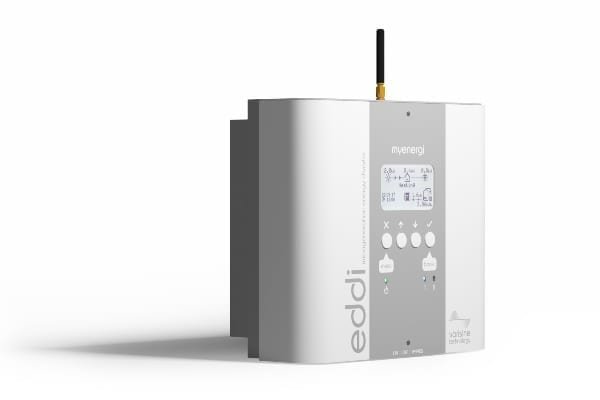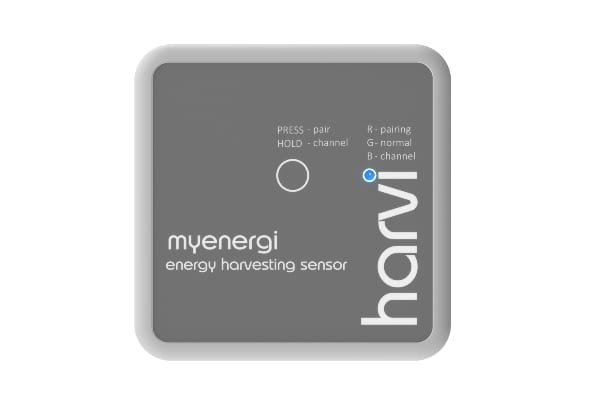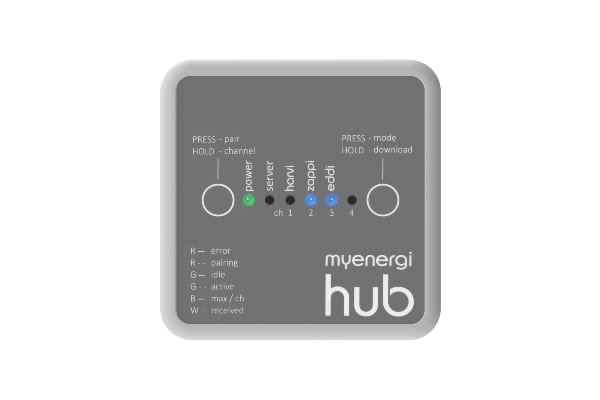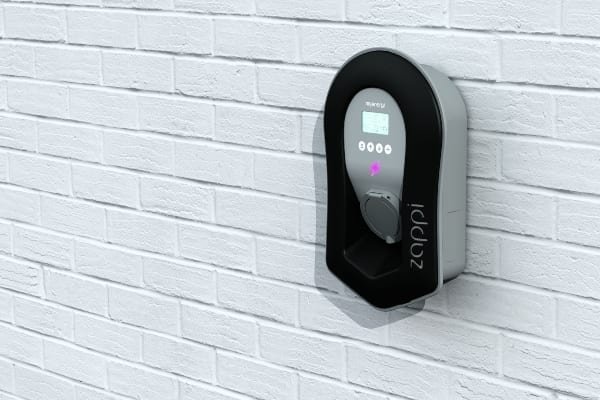This article first appeared in our spring ’19 issue of MyGreenPod Magazine, The Organic Revolution, distributed with the Guardian on 31 May 2019. Click here to subscribe to our digital edition and get each issue delivered straight to your inbox
Jordan Brompton fell into the renewables industry by accident; ‘I started working for Lee Sutton with his previous company and I just joined to do a little bit of admin work’, she remembers. ‘I was teaching Zumba at the time and needed a daytime job to bring in some extra cash. I started a little role, for a little company out in Binbrook, and I ended up absolutely loving it.’
Jordan had found a sector that aligned with her ethics; she quickly saw renewable energy could address huge social and environmental issues: ending fuel poverty and reducing household energy bills while providing an alternative to fossil fuels.
‘We do a lot of work with social housing’, Jordan tells us. ‘With our eddi lots of homes can have free hot water or storage heating from the surplus power from their solar panels, which is obviously amazing. Then with our zappi, if somebody has solar panels or a wind turbine they can divert the surplus power to charge the battery of an electric car. This means that sometimes you can be driving around – at no cost at all – on sunshine.’
On the one hand it sounds too good to be true – a set of products that work together seamlessly to increase your return on investment in solar panels, reduce energy bills and protect the planet – but on the other hand it’s hard not to smack your head and say ‘why didn’t I think of that?!’
One of the secrets to myenergi’s success is that the product innovation is driven by co-founder Lee Sutton, and the gizmos he feels would make his own eco lifestyle a bit less of a battle. ‘Lee’s the genius’, Jordan laughs, ‘I don’t know how the guy does it. He spots an issue and then gets with his team of electronics engineers and locks himself in a room until he’s fixed it.’
Though she wouldn’t say it, Jordan’s skills are just as critical: it’s her job to humanise the products that Lee creates. She gives them an identity, gets them on the market and puts them in front of the right people – ensuring that the life-changing benefits are properly understood.
Problem-solving technology
Like Lee, anyone with solar panels will recognise the frustration of running in and out to plug the car in when it’s sunny, or racing round the house to switch appliances on when the sun’s out. Early adopters have taken the frustrations on the chin, accepting that an eco lifestyle may not be the path of least resistance. The difference is, when Lee spots an issue he resolves to do something about it.
‘What you might think is a niche idea can actually turn out to be a problem that a lot of people face’, Jordan explains. ‘When we thought of the zappi, Lee thought it would be nicher than niche. You’d have to have an electric car, you’d have to have solar panels – how many people in the UK would that apply to? But he holds his hands up now because he couldn’t have been more wrong: the zappi is absolutely flying off the shelves.’
Being first to market is a myenergi hallmark; the appetite for its products ‘wasn’t really there’ when Jordan and Lee first started out – but, as Jordan explains, ‘that’s when you know you’ve got a really good product: when you can solve a problem that the customer never even knew they had.’
The mainstream shift
Myenergi has a famously good relationship with its customers – and it makes sense, seeing as the Lincolnshire-based company is dedicated to fixing the issues that can stand in the way of the cleaner lifestyle so many of us crave.
‘We’ve had nothing but amazing support – you couldn’t ask for better customers’, Jordan tells us. ‘They’re early adopters, they’re really friendly, they’re really helpful – they’re the type of people I’d want in my life, to hang out with and go for a drink with. They’ve got the same ethics and morals as us – they want to save the planet, they generally love animals and they like to save a few quid.’
Menergi’s products are designed to work together to maximise savings and efficiency; the company has a ‘a whole roadmap of products’ in the pipeline that will support the full, mainstream transition to a conscious lifestyle. But are people ready for such a big a shift? ‘Absolutely’, Jordan says. ‘There’s a conscious shift going on at the moment; as I sit here there are people campaigning in Manchester, there are climate change campaigners on the streets in London – the David Attenborough movement seems to be happening in a big way, and it’s long overdue.’
Speaking as a pregnant millennial, Jordan has a firm grasp of the high stakes and the urgency for action. ‘We’ve got 10 to 20 years to try to do something to save our planet, not just for the sake of ourselves, but for the sake of our children. The thought of where the world’s going, if we don’t do something now, just terrifies me.’
Jordan feels that at last there’s enough momentum to really make a difference. ‘It’s becoming mainstream now’, she says, ‘which absolutely has to happen. The mainstream media will probably tell you the opposite, because there’s so much money in oil and the big car manufacturers have currently got a long way to go to catch up with some of the EV companies. They want the revolution to slow down a little bit because it’s progressing a lot faster than anyone ever expected.’
A Google EV?
Many see Tesla as the main force behind the growing demand for EVs because it has played such a crucial role in the proof of concept. Jordan agrees: ‘Tesla has shown that you can have an amazing electric car – and you can have the range and you can have the style and you can have the performance – and now other manufacturers are scrambling to catch up.’ As a result she feels EVs are destined to go mainstream; ‘All the electric cars that are on the market are completely selling out’, she says, ‘they can’t make them quickly enough.’ She expects to see the market erupt over the next 10 years.
‘I think we’re going to see the likes of Google, Uber, Apple – big companies like that – change the game and bring out their own versions of electric cars’, she tells us. ‘There are rumours in the industry that Dyson’s dabbling in EVs, too.’
 Play Video about This Rock Might Just Save The World
Play Video about This Rock Might Just Save The World Play Video about Play 2 hours of rock
Play Video about Play 2 hours of rock Play Video about Play 2 hours of brook
Play Video about Play 2 hours of brook Play Video about Play 2 hours of sheep
Play Video about Play 2 hours of sheep















































